Are electric heaters cheaper to run than central heating? Experts answer this hotly debated question so you can save money without worry
Our HVAC pros compare the costs


Electric heaters are a common necessity in most homes, to boost warmth and direct heat when needed.
But, with winter weather setting in, experts warn that in most instances they aren't cheaper to run than central heating – and certainly won't save you money long-term.
Here, our HVAC pros break down how much it costs to run an electric heater, the benefits of them, and why using one might not be the best option for you.
Are electric heaters cheaper to run than central heating?
While electric heaters are a brilliant, interim solution to add warmth to a room, they aren't a cost-effective fix long-term, even in comparison to leaving the heating on all day.
Andy Shu, HVAC specialist at ZapFixers explains, 'No, electric heaters are generally not cheaper to run than central heating unless you're heating a small, isolated space for a short period.
'Central heating, which typically uses gas or heat pumps, is more energy-efficient and cost-effective for heating an entire home.'
To break down the costs, Shu advises that the average cost of an electric heater is roughly between $0.15-$0.20 per kWh depending on local electricity rates. This means running a 1,500W heater for five hours would cost about $1.13 a day.
To compare the two home heating types, the average cost of central heating is around $0.05-$0.08 per kWh for gas heating, meaning heating a 1,500 square foot home costs around $1-$1.50 a day – making natural gas the cheapest type of heating to run.
'Gas is significantly cheaper than electricity per unit of energy,' says Shu. 'And, central heating systems distribute heat efficiently across the home, whereas electric heaters only warm a single space.'
Drawbacks of using electric heaters
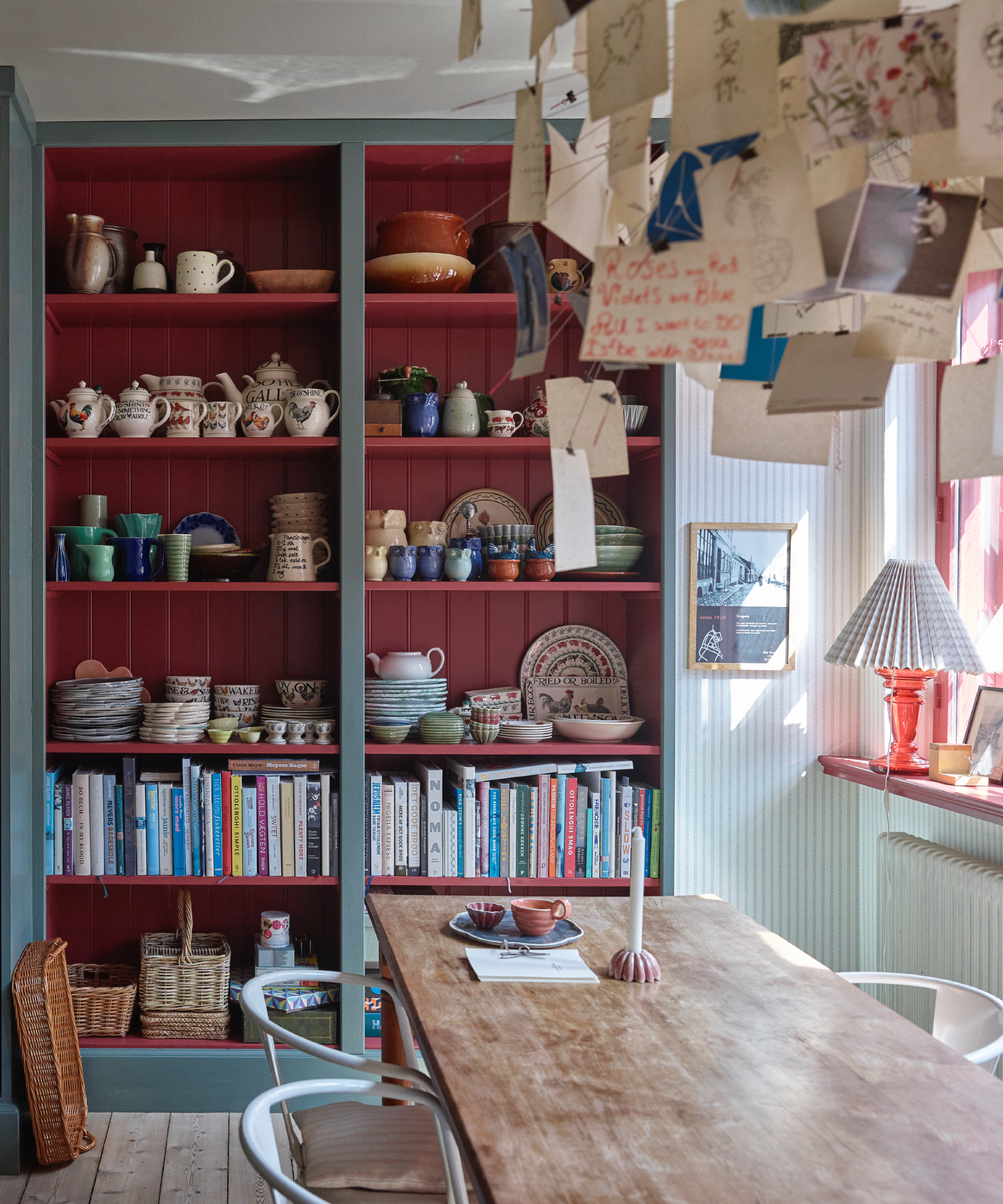
As well as being more expensive to run long-term in comparison with central heating, if you're wondering if you can leave a space heater on overnight, experts warn that prolonged use increases the risk of overheating, burns, and even fires. Instead, to negate one of the most common fire risks in your home, keep heaters approximately three feet away from any flammable sources, and always turn them off when heading to bed or leaving the house.
Francis Kasper, certified HVAC technician with Chill Brothers Texas, also notes that electric heaters 'may create dry air or hot spots if not placed correctly.'
When to use electric heaters
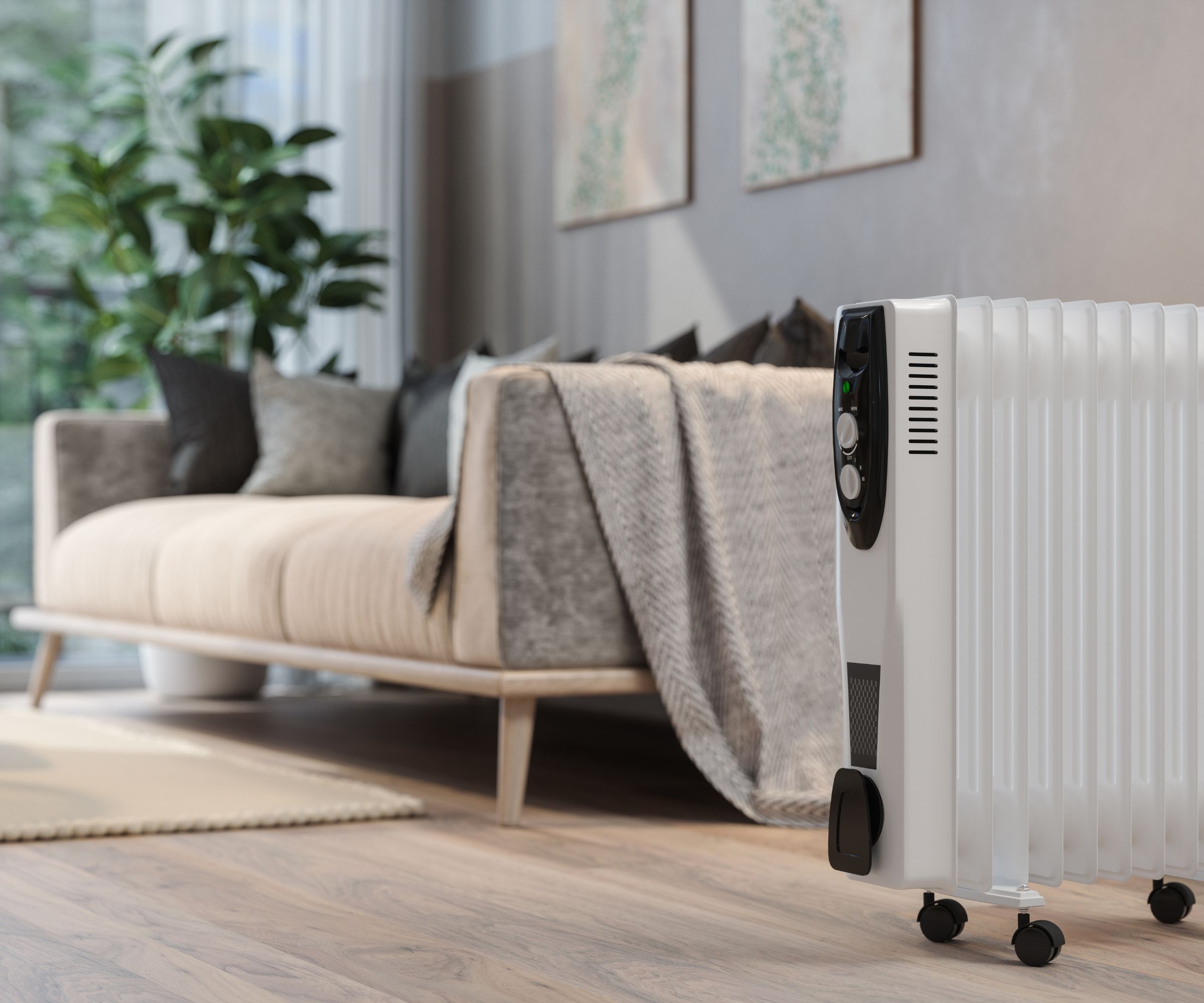
That being said, electric heaters are undoubtedly an efficient solution to temporarily heat up smaller spaces, particularly if you're clued up on the best types of space heaters.
Sophie Edwards, a News Writer here at Homes & Gardens who grew up in the U.S., says, 'My father's apartment growing up had electric heaters that you could turn on in just one room,' which can help to cut energy bills where applicable, by avoiding heating an entire home. As Colin Matei, owner and president of Clean Air Heating & Cooling says, 'This targeted approach reduces overall utility costs while providing comfort in specific spaces.'
Lucas Moncado, co-owner and master electrician at Brooks Electrical Solutions also points out that electric heaters may be a good match for eco houses which harness the power of solar panels. 'In instances where I've worked with renewable energy systems, like solar-powered homes, an electric heater can be an excellent match, offset by the energy savings of solar panels.'
Furthermore, electric heaters can also be useful to warm up spaces when experiencing problems with your central heating, while awaiting professional help.
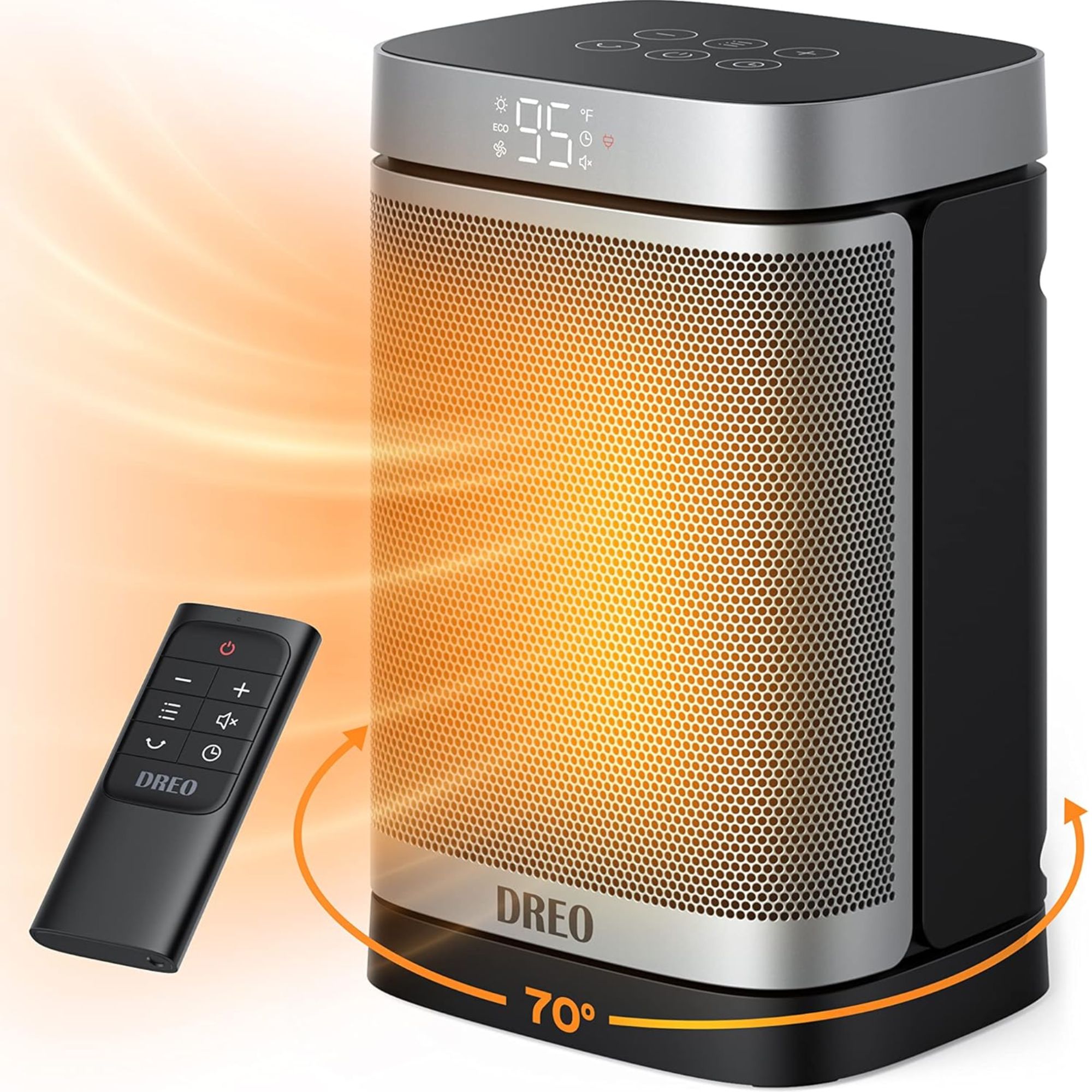
With over 77% of 20,500 global shoppers rating this space heater at five stars, it's a number one bestseller, with various modes and a remote control for easy use.
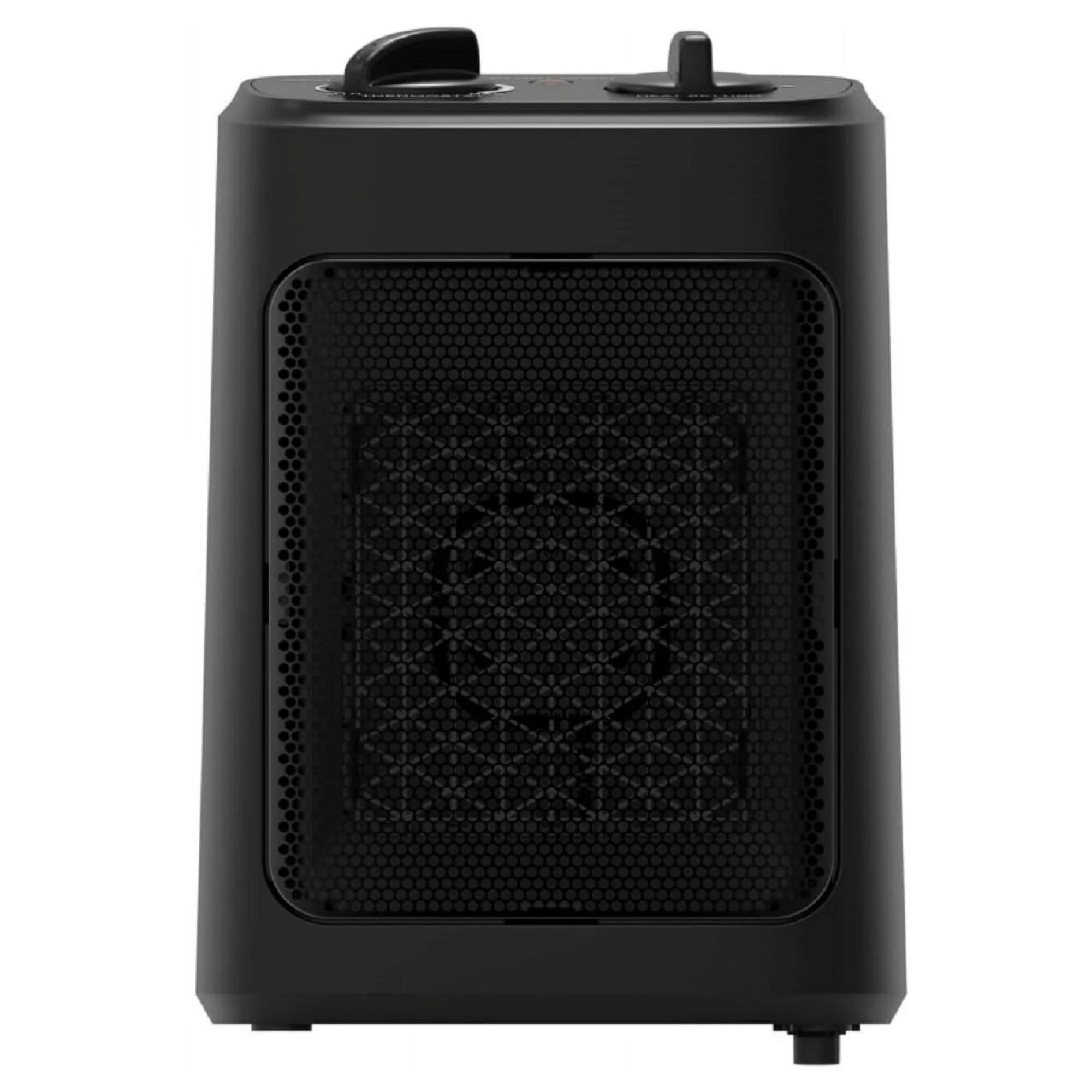
This electric heater is compact and affordable, with a fan-only setting for all-season use throughout summer, too. I've added this must-have, highly-rated one to my cart for Black Friday.
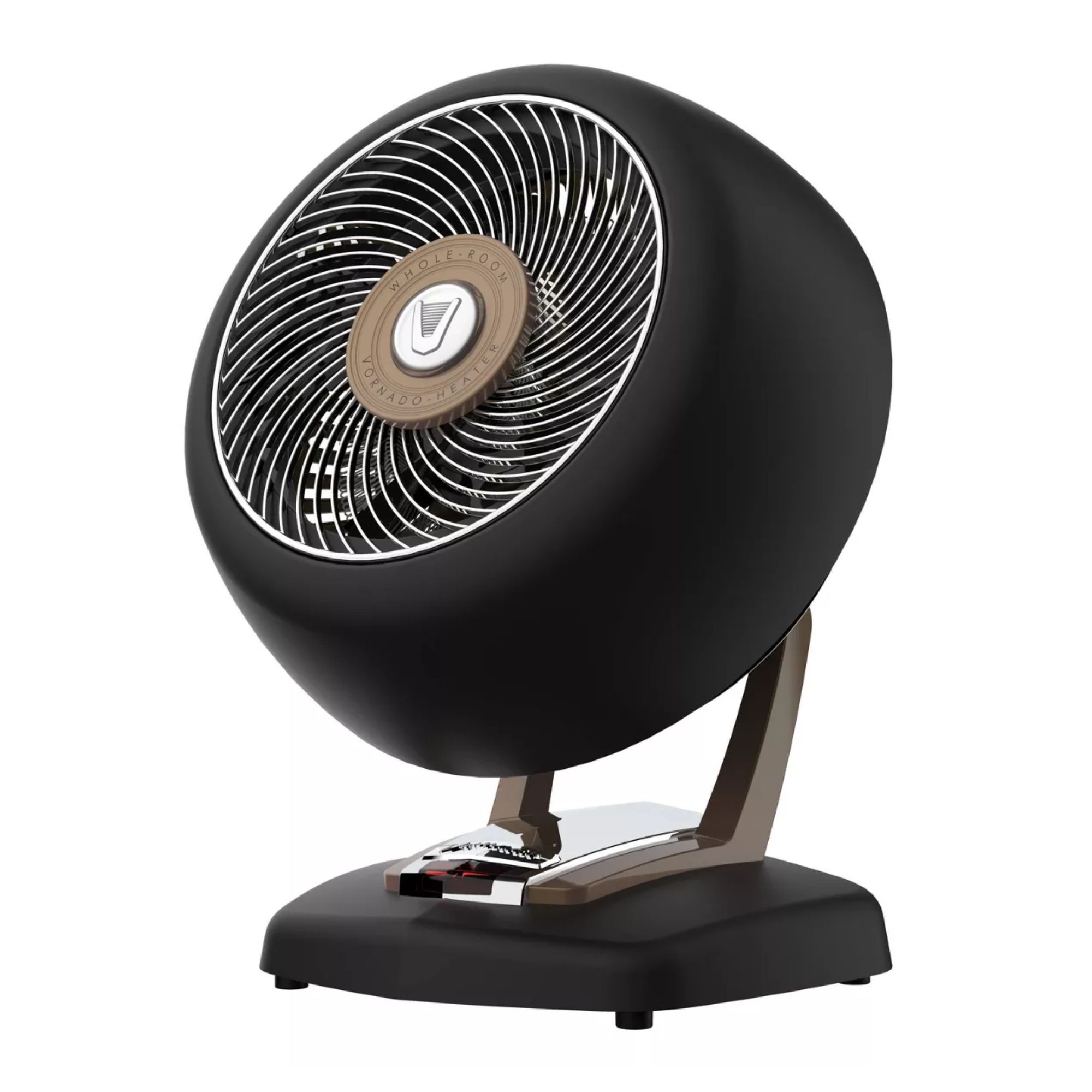
This portable electric space heater uses vortex air circulation to heat an entire room, with two heat settings and an adjustable thermostat.
How to get the most out of your electric heater

Electric heaters can be expensive, so, when using one in your bedroom ideas or living room ideas, how can you make the most out of it? HVAC specialist Shu shares his tips:
- Use a thermostat-controlled heater to prevent unnecessary overheating and energy waste
- Supplement it with insulation by ensuring windows and doors are sealed to retain heat
- Try zone heating by closing off rooms that don't need heating to focus warmth where needed
- Set a timer and run the heater only when you're present in the room
- Choose energy-efficient models by looking for ceramic or infrared heaters, such as the Lasko Oscillating Digital Ceramic Tower Heater available at Amazon for better performance
FAQs
How do you heat your home for free?
While certainly not the most reliable, or efficient, way to heat your home, you can warm up your space even on cold winter days by letting sunlight in.
For an affordable option, if you're wondering whether window insulation kits work, experts recommend them as a cheap solution to keep your house warm without turning up the heat.
Next, learn how to make heating more efficient to save you money without compromising on comfort.
Sign up to the Homes & Gardens newsletter
Design expertise in your inbox – from inspiring decorating ideas and beautiful celebrity homes to practical gardening advice and shopping round-ups.

Ottilie joined Homes & Gardens last year, after finishing a Master's in Magazine Journalism at City, University of London. With previous contributions in Livingetc and Motorsport Magazine, she produces content for the Solved section on the website, focusing on clever tips and tricks to keep your home beautiful, organized and clean. She also has a Master's degree in English Literature and History of Art from the University of Edinburgh, where she developed a love for inspiring interiors and architecture.
-
 How to get rid of bean seed flies – a pest control expert reveals how to keep crops safe from these seed munchers
How to get rid of bean seed flies – a pest control expert reveals how to keep crops safe from these seed munchersAs their name implies, these insects primarily feed on bean crops
By Tenielle Jordison
-
 Sarah Michelle Gellar's kitchen cabinets are moody yet elevated – I've always used dark paint with caution, but they make bolder tones accessible
Sarah Michelle Gellar's kitchen cabinets are moody yet elevated – I've always used dark paint with caution, but they make bolder tones accessibleThe actress's black kitchen cabinets are bold yet palatable, proving that this dark shade is a trendy yet timeless color pick
By Hannah Ziegler
-
 Why does my house feel damp? Experts reveal the 7 common reasons, risks and fixes to apply right now
Why does my house feel damp? Experts reveal the 7 common reasons, risks and fixes to apply right nowIf your house smells musty, there might be underlying damp to sort out
By Sophie Warren-Smith
-
 Do you have condensation on the outside of your windows? This simple rule of thumb determines if it's normal, or a sinister warning sign
Do you have condensation on the outside of your windows? This simple rule of thumb determines if it's normal, or a sinister warning signHVAC pros share expert insight
By Ciéra Cree
-
 6 ways to prevent mold and damp in bedrooms – expert solutions to maintain a safe sleep environment
6 ways to prevent mold and damp in bedrooms – expert solutions to maintain a safe sleep environmentDon't sleep on these six tips, experts urge
By Seraphina Di Mizzurati
-
 HVAC pros reveal 2 'Goldilocks' ranges for the ideal room temperature in bitter winter – it differs from day to night, and room to room
HVAC pros reveal 2 'Goldilocks' ranges for the ideal room temperature in bitter winter – it differs from day to night, and room to roomKeeping rooms at the right temperature is vital for comfort and efficiency
By Ciéra Cree
-
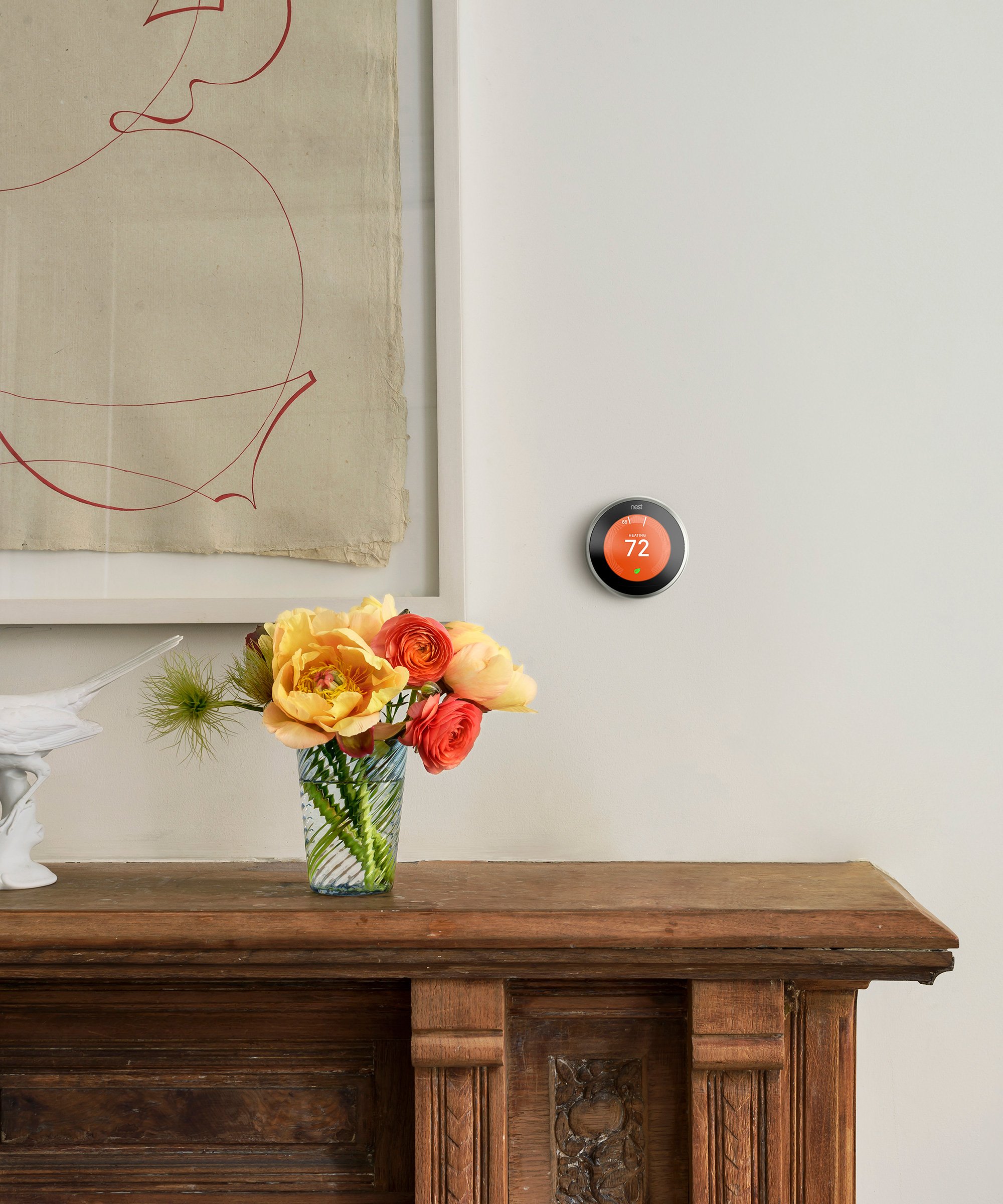 HVAC pros say this is the most efficient heating schedule to keep you warm at home all day – and why automating it is the best move
HVAC pros say this is the most efficient heating schedule to keep you warm at home all day – and why automating it is the best moveThere’s no one-size-fits-all – here’s how to tailor heating to your home
By Chiana Dickson
-
 How dust and dirt increases your energy bills – plus 5 ways HVAC pros deal with it to cut costs
How dust and dirt increases your energy bills – plus 5 ways HVAC pros deal with it to cut costsThese cleaning tips could save you hundreds
By Chiana Dickson
-
 Is your house heating unevenly? HVAC pros reveal 5 common reasons, plus their top tricks for consistent heating throughout your home
Is your house heating unevenly? HVAC pros reveal 5 common reasons, plus their top tricks for consistent heating throughout your homeEliminate hot and cold spots with these fixes
By Chiana Dickson
-
 What is a zoned heating HVAC system? We get the lowdown from the pros
What is a zoned heating HVAC system? We get the lowdown from the prosThis expensive addition could actually save you money
By Sophie Warren-Smith